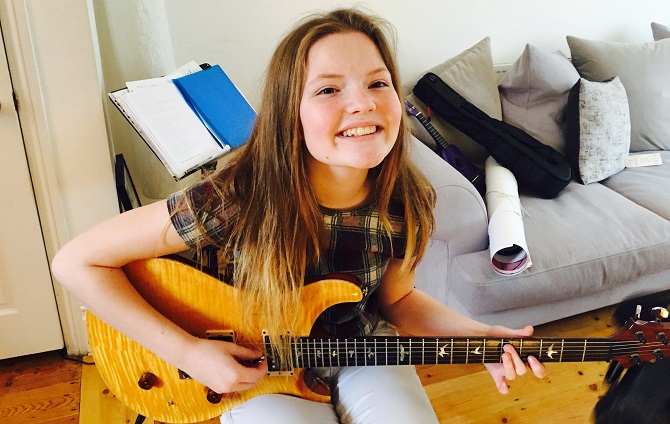What Makes Playing Music the Ideal Activity for Children?
Though we’ve come to associate playing music with talent solely, it doesn’t take long to see talent alone isn’t enough for success, practice is. So, if you’re thinking of your child as a successful musician one day, or at least want to provide him or her with the nice hobby, it’s music time!
As it’s become known in the parenting world, babies in the womb can hear music so it’s always better to start off early. But don’t worry, you haven’t missed your chance to introduce your child to the melodies even if you haven’t played songs during pregnancy.

Now, instead of starting with an instrument right away, it’s advisable to set the musical ground at home, by first playing music and showing how fun it can be, letting them guess the instruments through sounds. This way you can expect your child to develop an appreciation, so don’t hold back playing a variety of genres you like; it doesn’t have to be strictly classical.
As soon as you’ve got their interest, you can consider the instrument. Most parents go for the piano, and toss away the guitar because of the ease of playing even for kids as young as five or younger, however with the childrens electric guitar and acoustic guitar design nowadays, you’d no longer have that excuse.
A small design, appropriate for the small fingers, these guitars are easy to grip, and unlike the 6-string standard models, they’ve got 3, so as to make for clearer sounds right from the beginning, and seamless transitioning to the standard. Approved by educators, equipped with instructional app, the childrens electric guitar as well as acoustic design makes an ideal choice.
It might not seem that way yet playing an instrument can be just as much fun for children and parents together, apart from being educational and beneficial for the brain development. This means, music can help you create lovely memories you would cherish for a lifetime, and a simple note can take you back to those moments of happiness.
It would also be inspiring for kids to see their parents giving as much effort in practicing, so they wouldn’t think of it as a must-do activity, but rather an enjoyable one. Along with playing (or attempting!) your favourite songs, you can create your own songs, make the experience more personal, or even come up with song games, such as express your feelings with music.
The joy is in experimenting and improvising, and the underlying lesson you would be giving here would be that of encouraging children to be okay with mistakes and practice by letting their creativity come to light.



